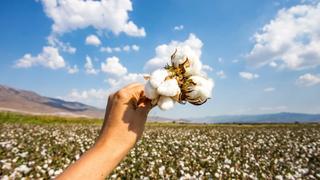Exporters of fruits and vegetables from Kerala do not see any impact of the new norms that Qatar has announced to regulate the imports.
The Ministry of Municipality of Qatar has a new regulation that requires prior permission for importing fruits and vegetables from December 1. The new regulation, according to a trade notice, is to ensure the quality of products, reduce wastage andensure the availability of all food commodities to contribute to food security in Qatar.
“We are strictly adhering to all quality standards on all exports not only to Qatar but all the other gulf destinations and the trade notice seems to be a routine one issued by the health department there,”,a source in the exporters’ fraternity in Kerala said.
Daily shipments
The quantum of exports to Qatar is hardly 10-15 tonnes per day from the three airports put together out of the 150 tonnes daily shipments to all gulf countries from the State. Kerala is somehow managing to meet the demand with the improvement in-flight connectivity to Qatar. At present, there are around 15 flights per week catering to the trade-in Qatar, both through wide-bodied and narrow-bodied aircraft, the source added.
Dil Koshy, secretary, Agriculture Products & Processed Food Exporters Association (Appexa), said that it was the absence of flights to gulf countries is posing a problem to the trade, as the Covid pandemic has disrupted the overseas movement of cargo not only to Qatar but to all the gulf countries. The shortage of scheduled flights and the operations of airlines as and when there is passenger load is creating all sorts of difficulties for exporters to meet the delivery schedules of their clients. The incoming flights from these countries are only looking for available cargo, mostly perishable. The import cargo has also been hit in the absence of required flights from these destinations, he said.
It is pointed out that Qatar is a small market relying heavily on imports and hence it maintains a strict adherence to the safety and standard of food commodities being exported. In October, as part of its intensive inspection campaign on food establishments, the Municipality had seized several quantities of frozen meat, fish, fruits and vegetables from warehouses and restaurants unfit for human consumption.
The new regulation is part of Qatar’s National Food Security Strategy 2018-23 that works to improve local markets and improve and simplify the governance of food standards to monitor food safety in the country. The strategy also seeks to reduce food loss and waste estimated at about 14 per cent from the time of arrival in Qatar or during transportation from local farms to consumers.







Comments
Comments have to be in English, and in full sentences. They cannot be abusive or personal. Please abide by our community guidelines for posting your comments.
We have migrated to a new commenting platform. If you are already a registered user of TheHindu Businessline and logged in, you may continue to engage with our articles. If you do not have an account please register and login to post comments. Users can access their older comments by logging into their accounts on Vuukle.